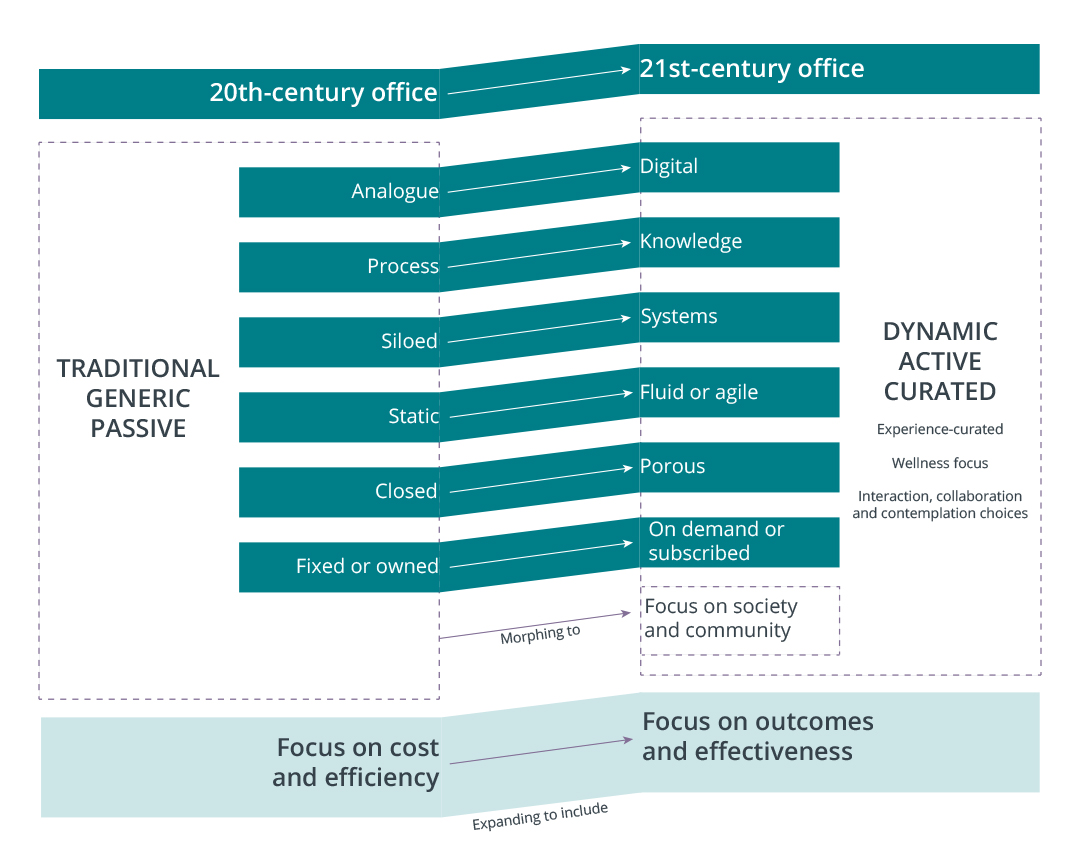
© Bethany Legg, via Unsplash
Before the pandemic, facilities management (FM) was often regarded as the invisible service among the wider property and construction sectors. However, the way that FM has coped with so many unparalleled challenges for more than a year has shown how critical it can be.
FM now has a once-in-a-lifetime chance to demonstrate how it can help businesses operate effectively, safely and in a resilient manner. There are unprecedented opportunities for the profession to assume greater leadership in supporting businesses through the massive shift from fixed to fluid working brought about by COVID-19.
The 2020 pandemic crisis will be seen as a historic and dramatic tipping point for major change across society, the economy and business. This has also extended to FM, as the enforced lockdown had major implications for the sector and it is heartening to see how it played its part in keeping the show on the road, from enabling the extraordinary transition of office workers to home working and supporting healthcare professionals in their vital activities to enabling logistics and manufacturing to function, as well as maintaining and securing empty buildings.
For the first time, business leaders are recognising this great effort. It has certainly raised awareness that FM has the capability and agility to deal with challenging situations. This proves that FM's time has come – and this opportunity should not be wasted.
From fixed to fluid
Lockdowns around the world have not only changed the game for offices but the entire stadium. The global experiment in working from home proved that businesses could operate effectively without offices. While debate rages in the media about the relative merits of continuing to work from home, returning to the office or hybrid working, we need to think about how all these options are supported in an era of exceptional change.
Figure 1 summarises six key shifts of the past decade or so, all of which were accelerated by lockdown. Suffice it to say they all have implications in the way businesses use the built environment, which also affect the FM profession.

We should recognise that the pandemic will influence the way we live for the foreseeable future, and resilient operation will be key to success for FM.
We are also going to see a much greater emphasis on distributed office workforces, and businesses need to have viable workplace strategies in place. Many companies may not find it feasible to return to the office on a rota basis.
For example, employees will demand the ability to work flexibly anywhere, anyhow, anytime and with anyone. This poses huge challenges, not just for business managers but also for real-estate and FM arrangements that focus on a physical space located in a particular place.
'Employees will demand the ability to work flexibly anywhere, anyhow, anytime and with anyone'
Spaces as a Service – a new frontier?
Traditionally, the core tenet of property investment has been 'build it and they will come'. This has been coupled with archaic regulations that depend on a medieval-style landlord and tenant leasing system.
Even before the pandemic this model was beginning to run its course, with the introduction of office space as a service and the increased use of co-working spaces and managed offices.
These changes and the pandemic have combined to create a perfect storm for a sector that has never had to face such large-scale disruption before. In the next few years, the entire sector needs to provide a model more appropriate to the 21st century, a model that must meet the requirements of those who actually use our services.
As the wider economy has moved to an highly customised, on-demand way of consuming goods and services, it is now time for commercial real estate to fall into line. In doing so, it needs to be able to offer a seamless service – and this is our opportunity to play a pivotal role in developing space as a service.
Unlike other sectors of real estate, FM retains ongoing links with its customers, the users of the buildings. FM will therefore be integral to real-estate operations, providing the services that are required and demanded by clients across multiple work settings, and not just confined to one office block and its facilities.
Next steps for the sector
Since we are witnessing a large-scale, ongoing rethink about the way companies and clients use office space, FM needs to seek fresh perspectives beyond lockdown. We need to accept that we are facing fundamental change, and collaborate with others to think differently.
-
Looking beyond the physical building
We need to consider the way people work and what they require from their office spaces as occupiers or users, as well as rethinking the relationship between the client and the way it uses offices.
-
Adapting to the ubiquity of choice
It is now all about choice. Employees recognise that they can choose where, when and how they work. Employers are also beginning to see that they need to adjust their thinking if they wish to be seen as an employer of choice. The implications of such are enormous for FM in terms of service levels, providing workplace experiences and safe environments.
-
Reimagining the office building
We also need to reimagine the way offices are funded, designed and built by asking ourselves whether they meet the requirements of those using them. In recent years there has been an explosion of interest in experience and well-being in the workplace – are these needs being met? Offices must also operate in a smarter, more sustainable manner, in keeping with the necessity of reducing carbon emissions.
We are now at a crossroads about what sort of profession we want to be, so we should pay particular attention to our primary responsibility – which is to be stewards of the built environment. With this in mind the observation made by polio vaccine pioneer Dr. Jonas Salk is particularly apt, that the most important question we can ask of ourselves is, 'are we being good ancestors?'
Chris Kane is co-founder of Six Ideas and author of the book Where is my office?
Related competences include: Property management, Strategic real estate consultancy
